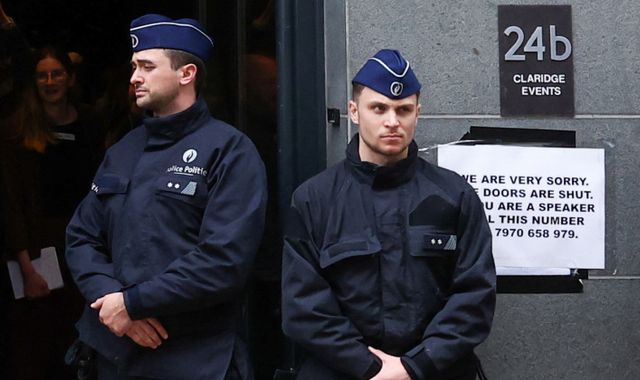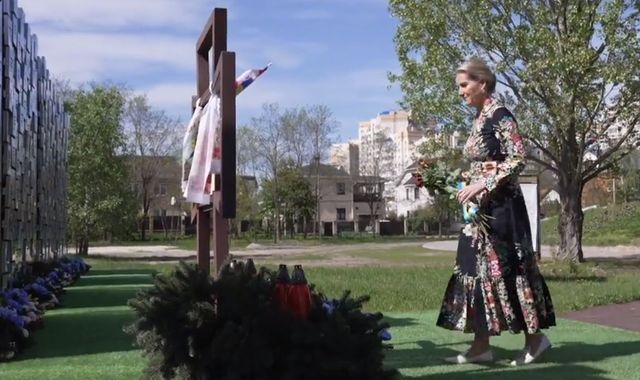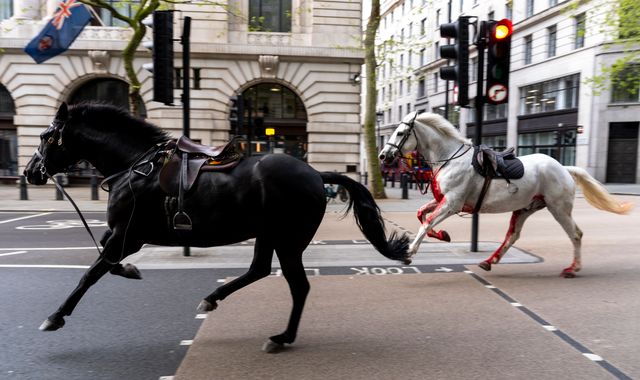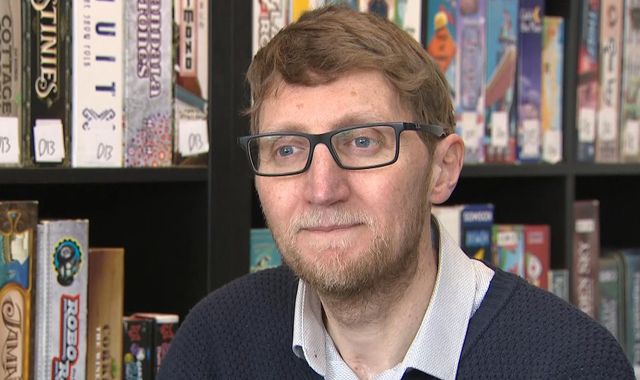The actions of Brussels' authorities only helped those arguing against cancel culture
16 April 2024, 16:13 | Updated: 16 April 2024, 18:29

Locked out and not allowed back in.
That was the rather extraordinary position Nigel Farage and some conservative politicians found themselves in today at a right-wing conference in Brussels.
The police's action provoked yet again arguments around free speech and extremism - but ultimately ended up creating major news too.
Politics latest: No 10 criticises bid to shut down conference
It wasn't meant to be that way.
The National Conservativism Conference is frankly a fringe event. Yes, it started five years ago, and previous guests have included Michael Gove and Jacob Rees-Mogg.
This year Mr Farage and Suella Braverman turned up. These are undoubtedly big voices on the right, but they weren't expected to create much news.
In fact, most of the limited coverage was likely to focus on the former home secretary's rather punchy attack on her old boss the prime minister and setting out a case for leaving the European Court of Human Rights (ECHR).
Instead, the repeated actions from several district mayors in Brussels to ensure the event didn't have a venue took centre stage.
Explaining why he had brought in the police - the mayor Emir Kir said some of the attendees hold anti-gay and anti-abortion views.
And writing on X he claimed: "The far right is not welcome."
This unsurprisingly provoked an angry response from those there, including Mr Farage, who told Sky News: "Have you seen the people in the room? Does this look like a bunch of yobs to you? Far, far from it.
"These are a lot of very respectable, very eminent people. I mean, we've got bishops here.
"We've got a prime minister of a country here. We've got a European royal family here.
"I mean, these are very respectable people. There's also no protest outside of any significance at all. It's about closing down an ideology."
Irrespective of who is right and who is wrong, this latest skirmish in the constant battles around free speech was seized upon by the conference as the latest example of cancel culture.
Cancel culture in real time as one claimed.
And the rather blunt use of the police, far from silencing those in attendance, merely seemed to amplify their arguments.
This makes it difficult to conclude that if you wanted people not to hear your views about cancel culture, the actions of the Brussels authorities only helped in that cause.
(c) Sky News 2024: The actions of Brussels' authorities only helped those arguing against cancel culture

























